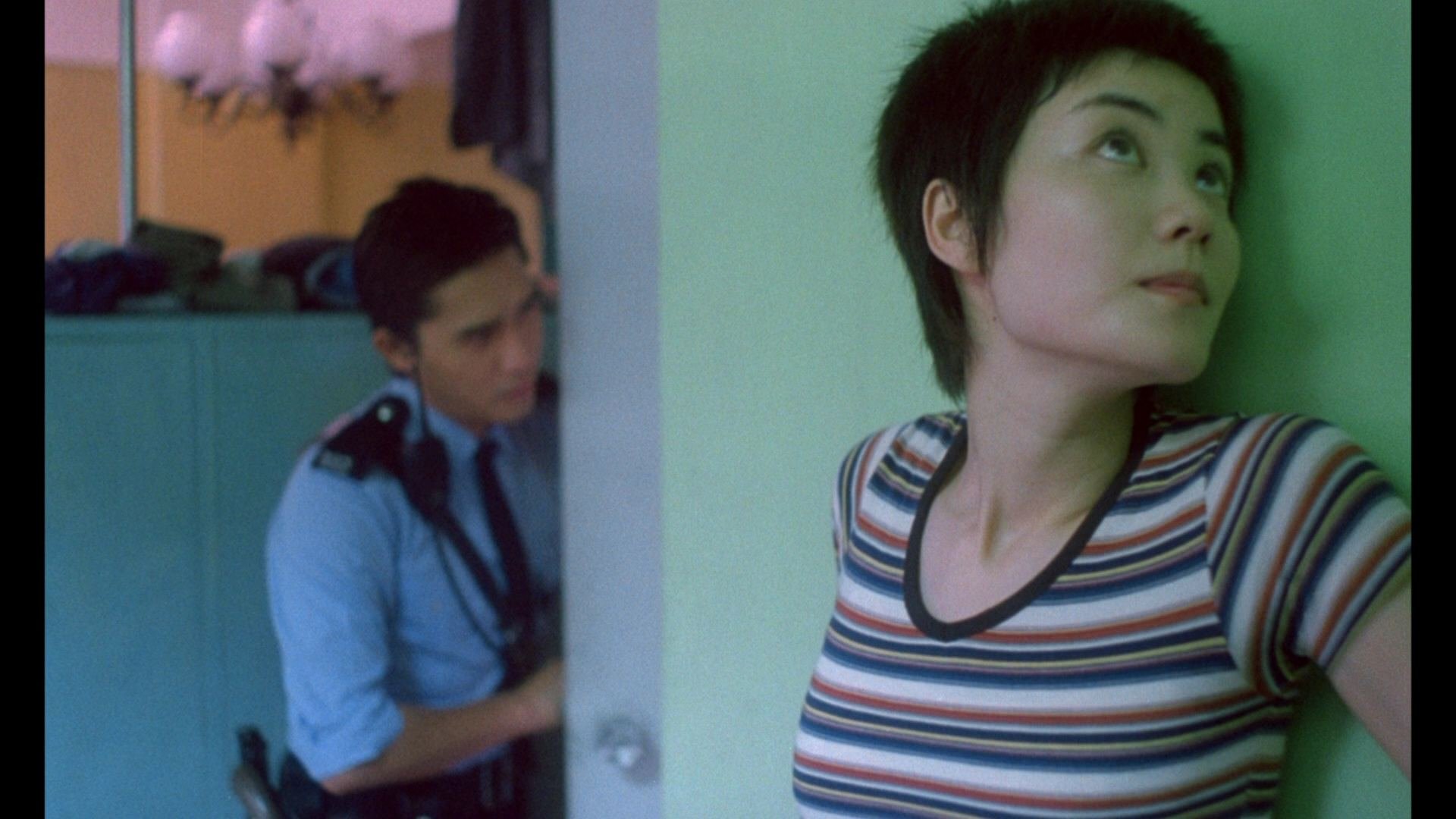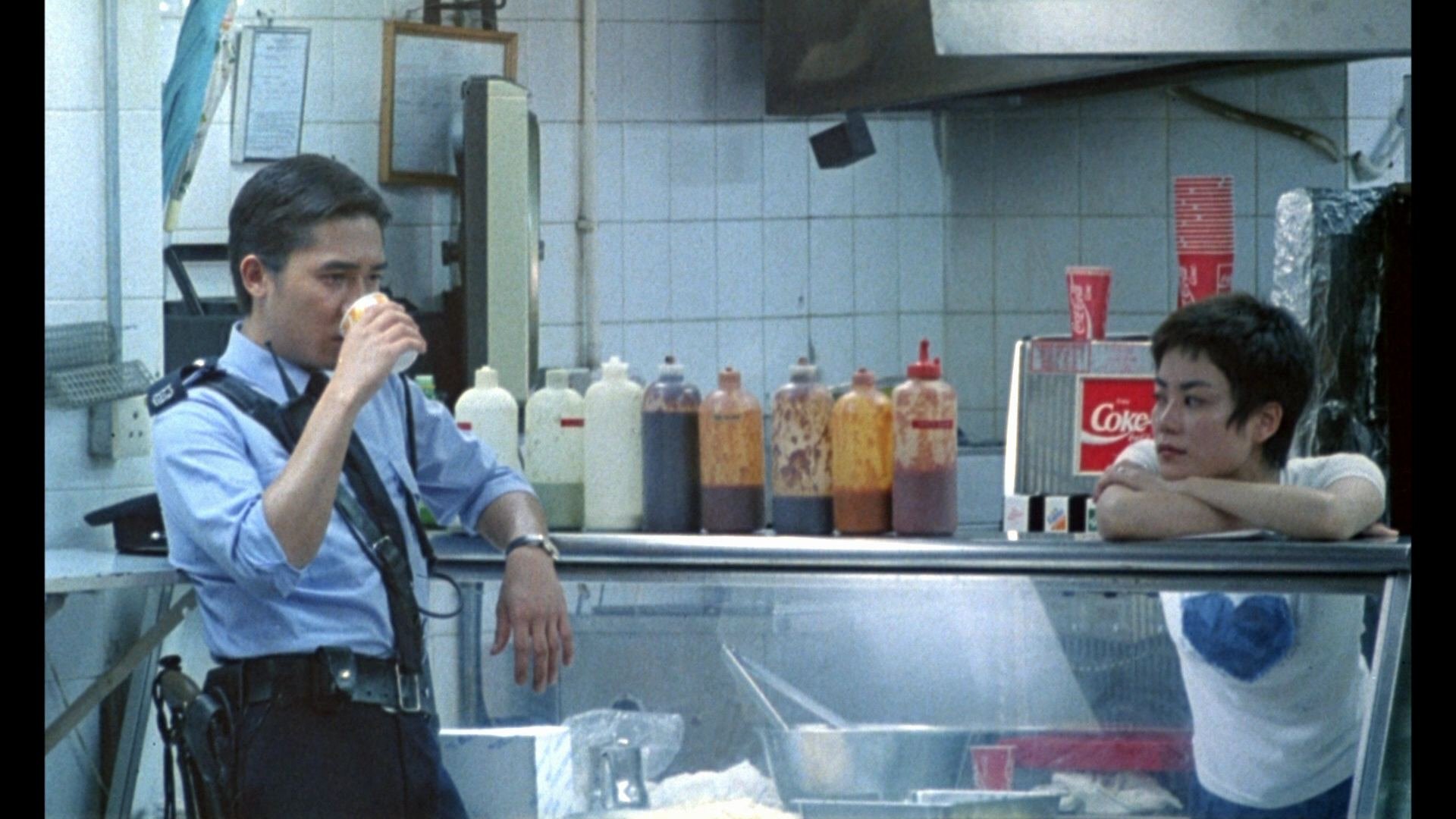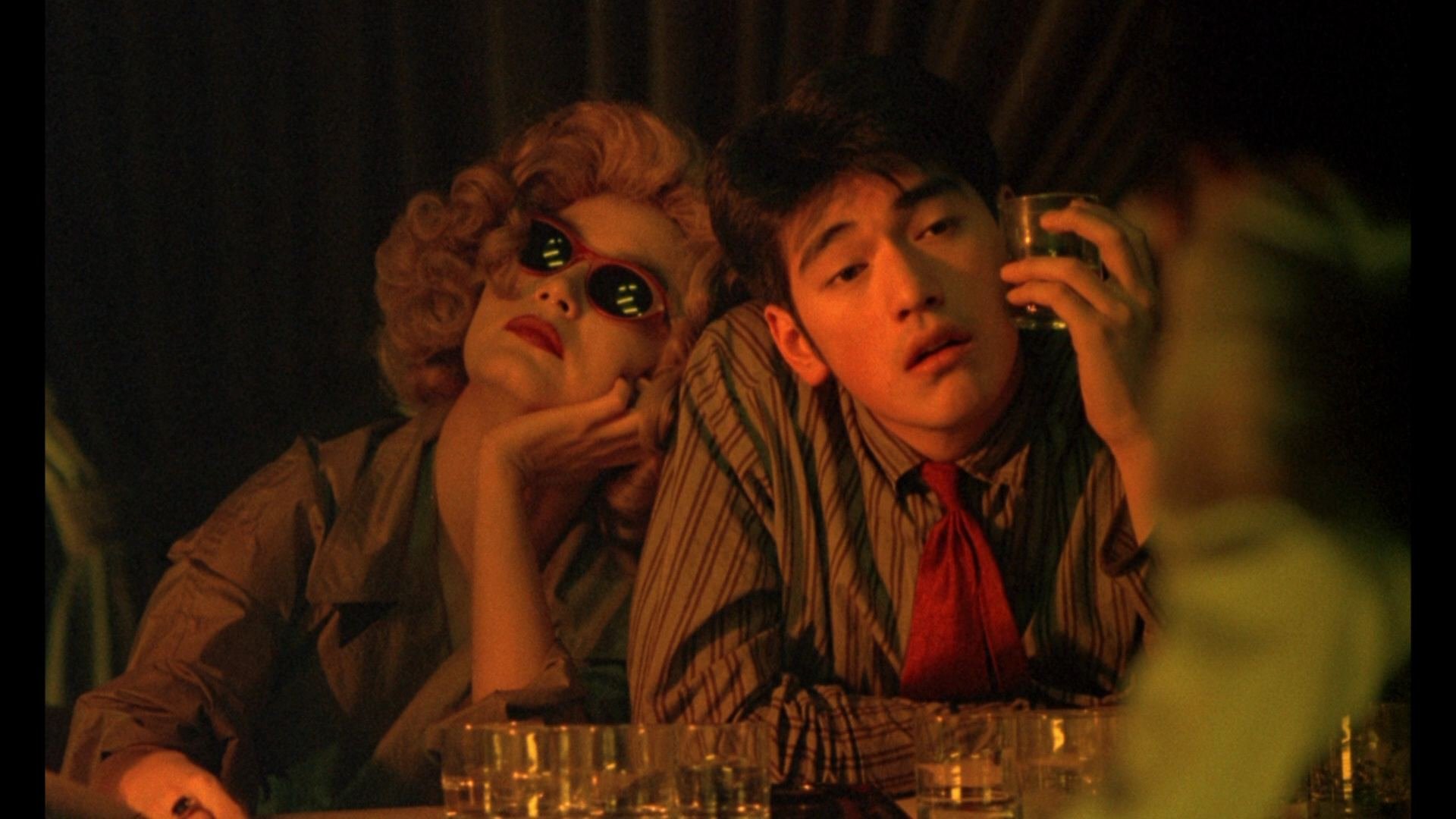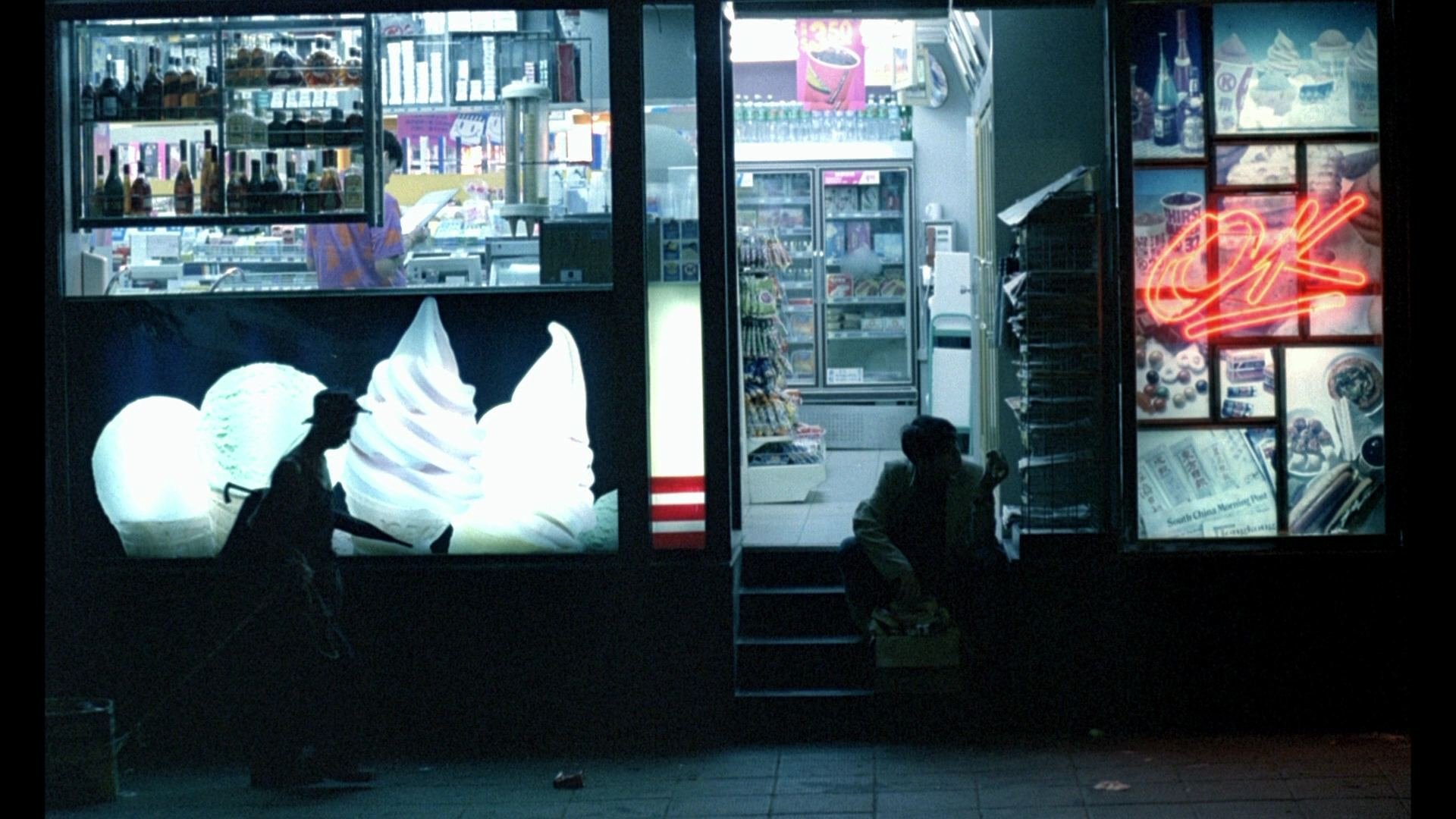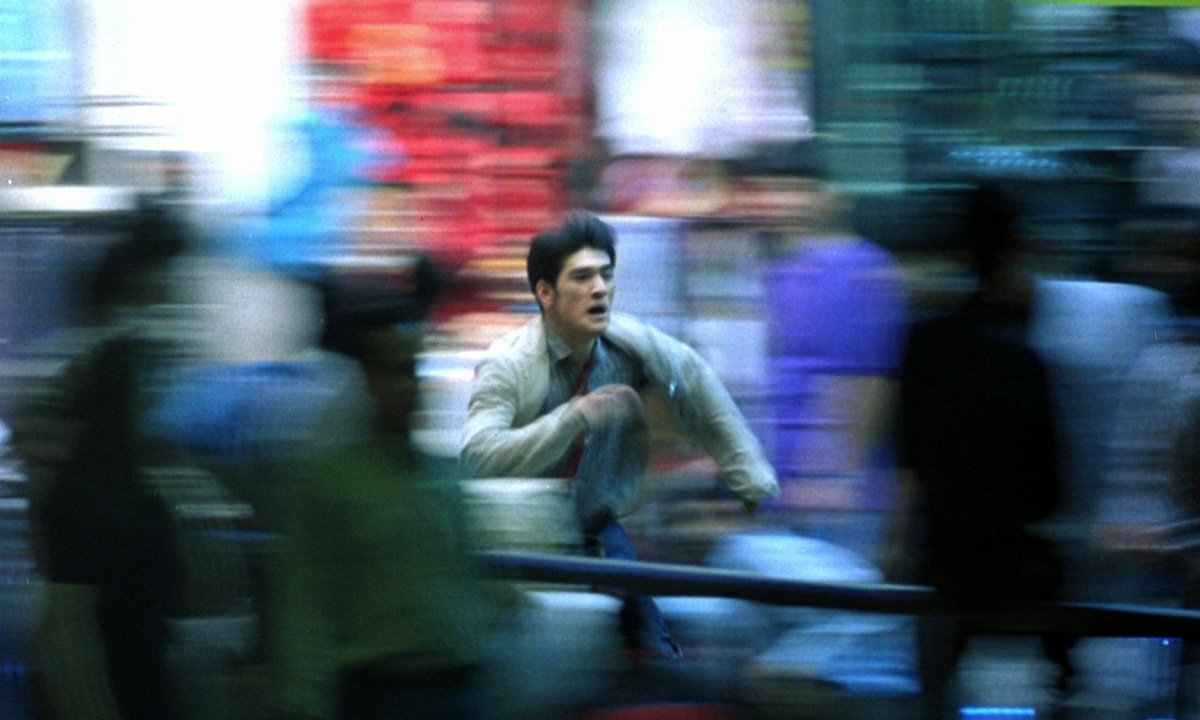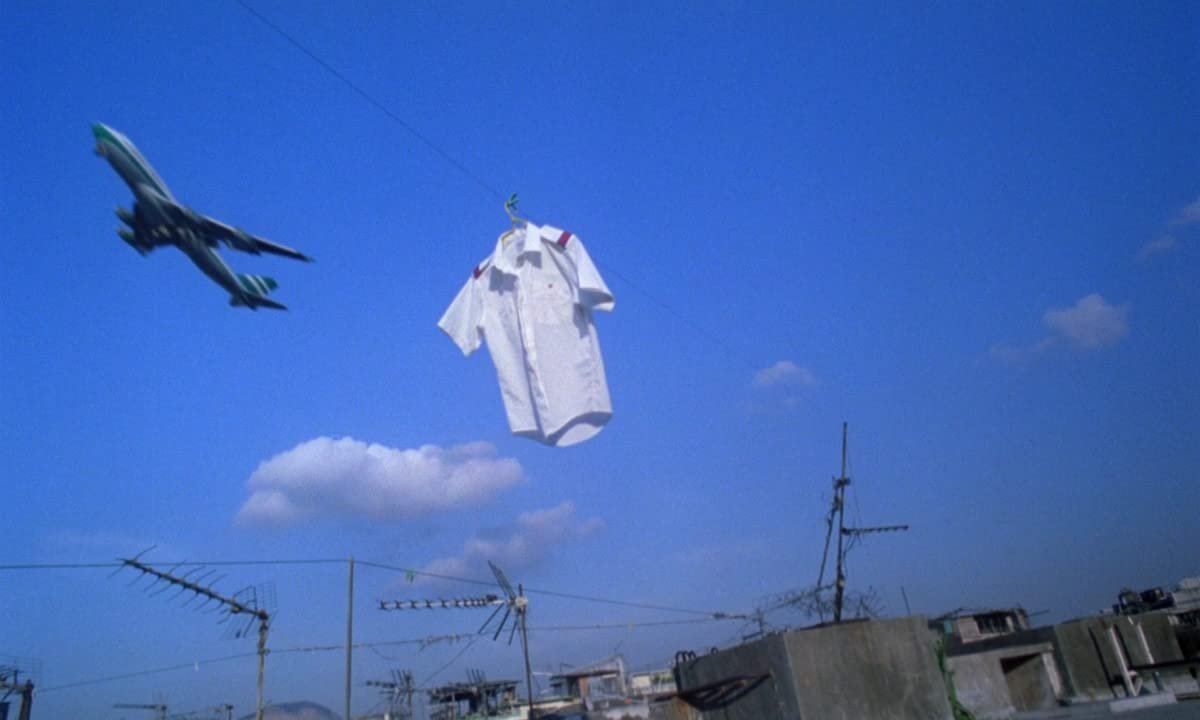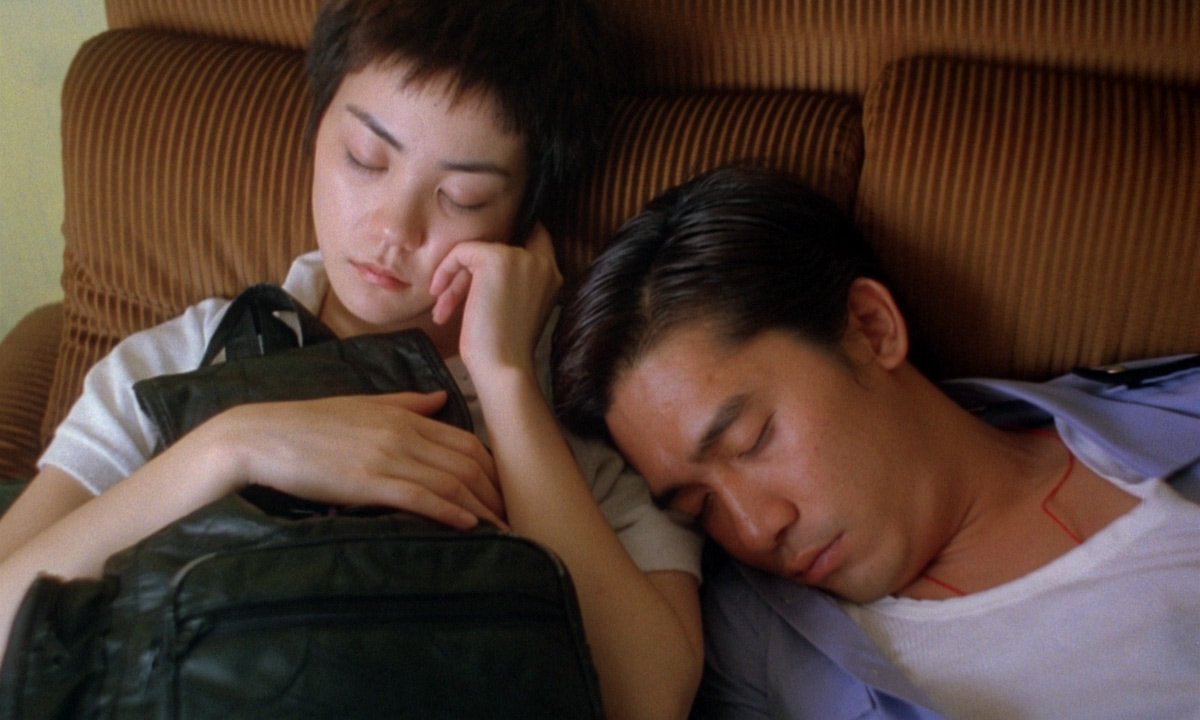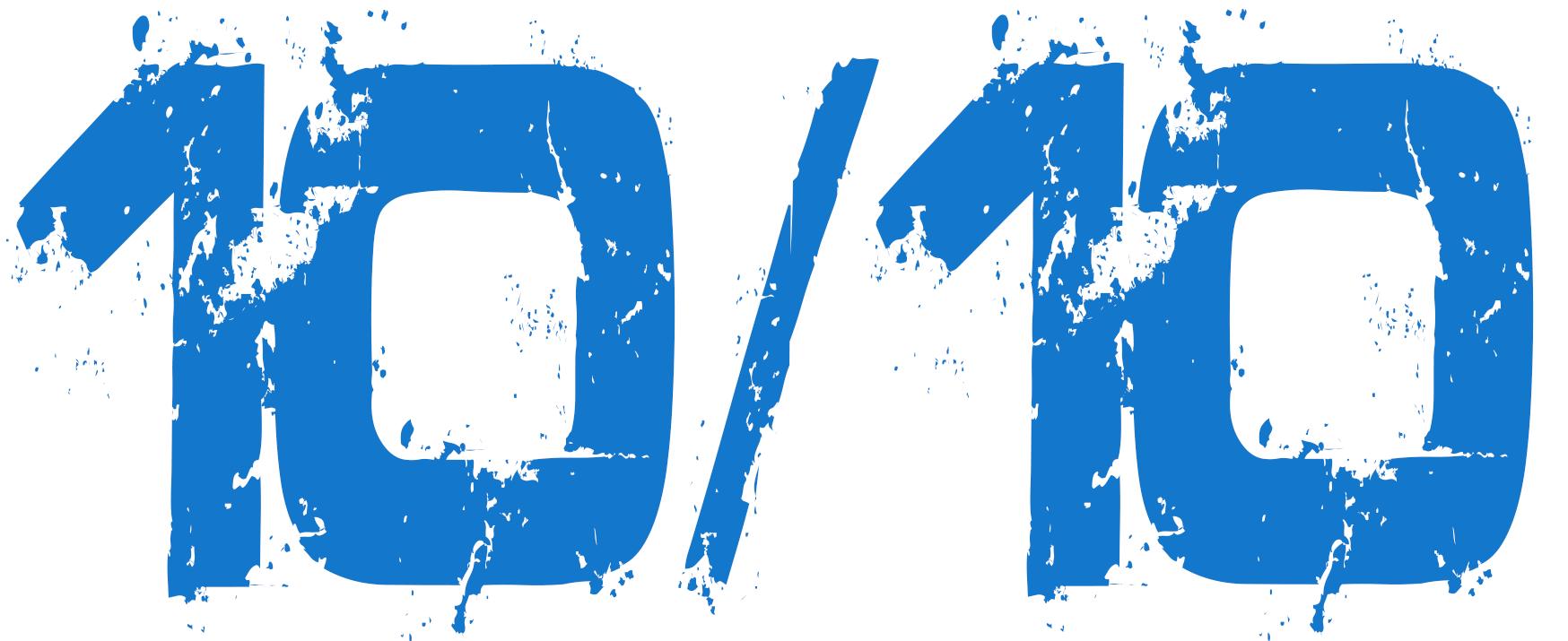Chungking Express (1994)
Director: Wong Kar-wai
Starring: Takeshi Kaneshiro, Bridgitte Lin, Tony Leung, Faye Wong
Primary genre: Romantic
Secondary genre: Crime
Third genre: Drama
Fourth genre: Comedy
Exploding in 1994, Wong Kar-wai’s “Chungking Express” inspired an army of imitators with its lyrical approach towards modern romance. Away from the feel good and triumphant tropes of Hollywood’s romantic comedies (e.g., “Pretty Woman“ (1990), “Sleepless in Seattle“ (1993)) and after two cinematic outputs that focused on crime (“As Tears Go By“ (1988)) and drama (“Days of Being Wild“ (1990)), Kar-wai’s interpretation of love inside a stylish Hong Kong was and remains to this day, something unique.
Endorsed by several heavy weight filmmakers and championed by Quentin Tarantino himself who sought to bring this film to US audiences, “Chungking Express” does not rely on the traditional romance format. Instead, the always wearing sunglasses director brings an open-minded take towards accidental encounters and fate presented through seemingly not connected plot threads and lengthy voiced overs, both common traits throughout his filmography.
Split into two segments of slightly different tone that share the overarching theme of moving on in a just about right running time, a take out joint sees most of the catalyst action which can lift a character up or send them spiraling downwards in the form of a letter, a key, or a pineapple can. Despite the broken hearts and internalized tears, Kar-wai suggests that there is value to be obtained through failed relationships and hope and optimism can be found; a sentiment echoed by the Mamas and the Papas’ “California Dreamin” and Dennis Brown’s “Things in Life”, the main songs chosen (in a stroke of genius) by the film’s characters to symbolize subtly their current emotional state.
Kar-wai uses the Pearl of the Orient as a sandbox for his so called “romantic” encounters, a far cry from the gritty and martial art veil that covered the city of Hong Kong for at least four decades, by staging stunning shots (see our favourite and beautiful shots gallery) under the exquisite lenses of Christopher Doyle (“Hero“ (2002)), and Andrew Lau (“As Tears Go By“) which are in turn populated by characters who convey a sense of loneliness, melancholia and a surprising determination to pull off whatever they have set their minds on.
Known for his “raw” takes and laconic script, Kar-wai allows his actors to run free with the material delivering compelling, raw and frankly, genuine performances that become even better in tender moments and should be on everyone’s top acting list. Tony Leung, Bridgitte Lin, Takeshi Kaneshiro and Faye Wong (she almost steals the film away with her child like innocence, extra introventism and iconic wardrobe) is fantastic, encompassing different acting styles in sharply defined roles.
And having one of the best soundtracks of all time comprised from various musical genres stitched together under one record (reggae, folk rock, instrumental jazz) only makes this cinematic version of the Fragrant Harbor all the more appealing, and an appropriate companion of this acting quartet throughout its busy streets.
Yet, this “eccentric” style of storytelling that relies mostly on visuals, audio and stoic delivery might alienate individuals who prefer superficiality and copious dosage of sweet melodrama but those with a tendency to analyse things over will gash over a meaningful glance in an underground bar, the importance of not opening a letter and the usage of a beeper so if you are a cinephile pay close attention and you will not be disappointed.
“Chungking Express” has something that is mostly lacking from similar context wise films of today: honesty and heart. It aims to place moviegoers in a world where being unable to find your other half is ok. But in the process of doing so, more fulfilling experiences might occur that leave plenty of room for emotional growth. And in the current state of world, social media saturation and online isolation, this message remains highly relevant.
Wong Kar-wai’s ode to romance
+Fantastic actors
+Faye Wong steals the shows
+Stunning cinematography
+Exquisite soundtrack
+Feel good
+Timeless themes that seem more relevant today than ever
+Lack of melodrama
+Stoic approach

